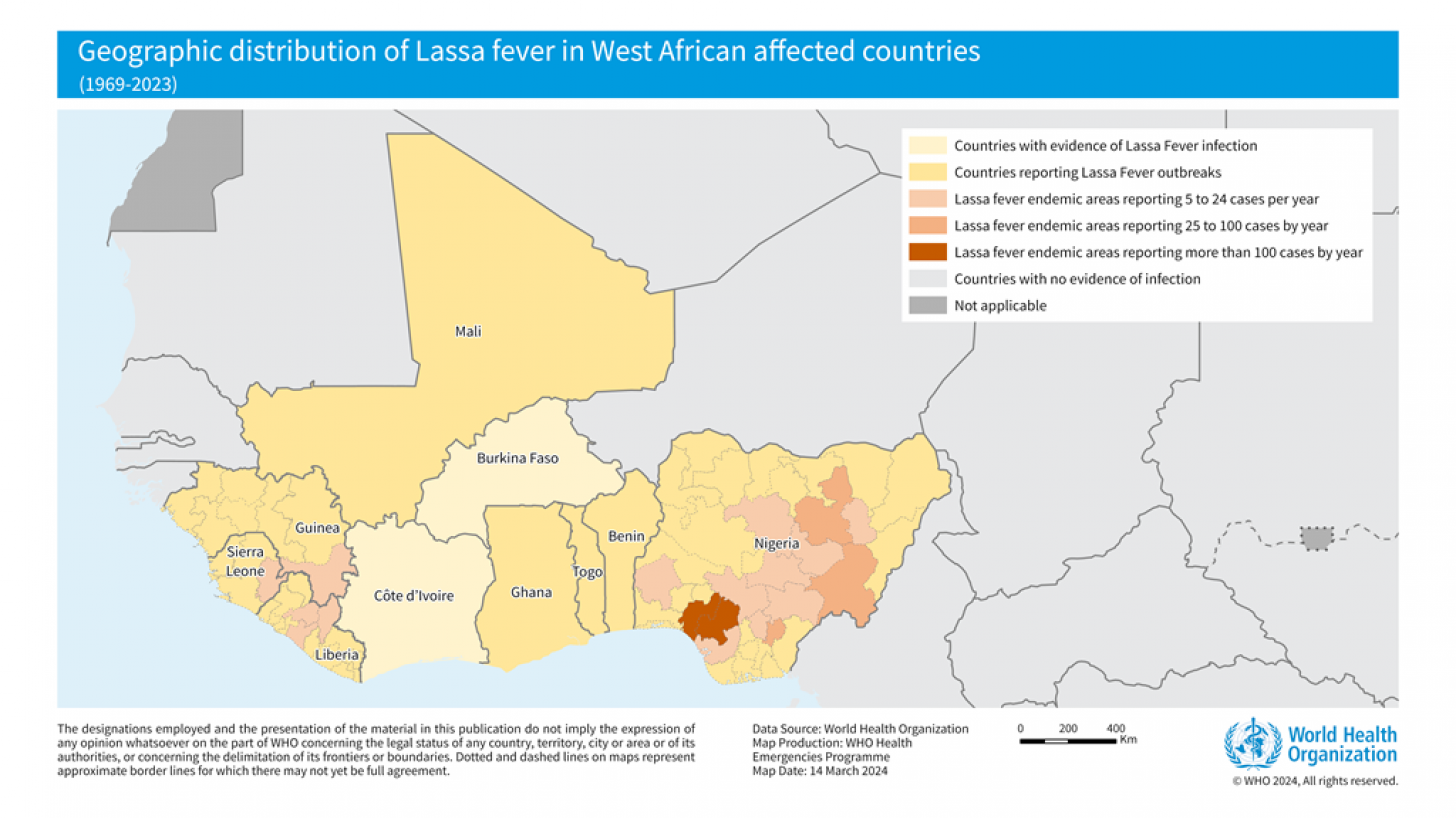Nigeria's Lassa Fever Outbreak Need a Preventive Vaccine

Today, the U.S. government announced launching a phase 1 clinical trial for a vaccine candidate to prevent Lassa Fever. The National Institutes of Health (NIH) says preventing illness through vaccination is a critical goal in reducing the disease burden from Lassa outbreaks.
This new NIH-sponsored clinical trial has begun enrolling participants in a novel, first-in-human Lassa fever vaccine study at the University of Maryland School of Medicine, Baltimore.
NIH/NIAID Director Jeanne Marrazzo, M.D., M.P.H., commented in a press release on March 17, 2025, “The progression of this candidate vaccine (LASSARAB) from the lab to a first-in-humans clinical trial is a promising step towards a vaccine to prevent Lassa fever.”
LASSARAB is based on the complete Lassa glycoprotein complex (GPC) antigen and an attenuated rabies vaccine (FILORAB1) that is inactivated.
The experimental vaccine is then modified to express all the rabies proteins found in the inactivated vaccine along with a Lassa virus GPC.
If LASSARAB is found safe and elicits a good immune response to both the rabies proteins and Lassa, it could be used to prevent both diseases.
In addition to this vaccine candidate, others (INO-4500, MV-LASV, rVSV∆G-LASV-GPC, and EBS-LASV) are conducting clinical studies in 2025.
Unfortunately, the World Health Organization has ranked Lassa as the most likely animal virus to infect humans ahead of Ebolavirus.
With about 300,000 patients yearly and a high case fatality rate, Lassa fever outbreaks have been recorded in West African countries like Benin, Ghana, Guinea, Liberia, Mali, Nigeria, and Sierra Leone.
As of March 2025, the Nigeria Centre for Disease Control and Prevention (NCDC) has announced that the Lassa Fever outbreak this year has already produced 100 fatalities, primarily in Ondo, Bauchi, and Edo states.
Last year, 190 deaths were confirmed by the NCDC.
According to the U.S. CDC, travelers returning from endemic areas have been confirmed for Lassa fever on rare occasions. The diagnosis of Lassa fever should be considered in febrile patients returning from West Africa, especially if they have been exposed to the zoonotic virus.
Currently, the CDC does not screen people arriving in the U.S. from west African countries.
Our Trust Standards: Medical Advisory Committee

